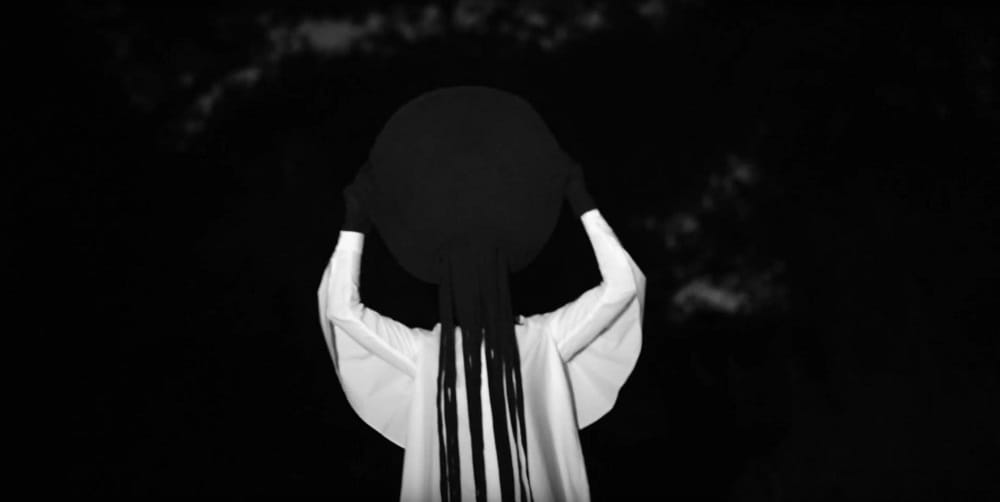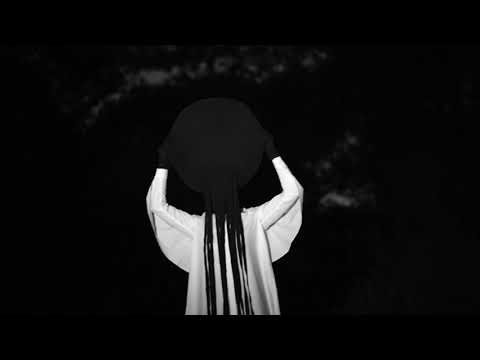With their debut album, CROSS BRINGER have created an energetic work that can be stylistically sorted between Celeste and Converge. Singer L. and songwriter S. talk about the intercontinental cooperation between their homes in Belgium and Russia, musical inspirations and modern interpretations of ancient Amazons.
Hi and thanks a lot for taking time for this interview! How are you doing?
L: Miraculously, still alive. So that’s something. Thank you!
The project name is CROSS BRINGER. What is the idea behind the name, what do you want to express with it?
S: To be honest, there was no clear concept behind it – coming up with band names is the hardest task for me personally. When we as a band were struggling with the name I’ve tried to come up with a combination of two words that could sound and look good (previously all the names of the bands I’ve played in only consisted of one single word), and so Cross Bringer was born. That name seemed more suitable than any other options we discussed with my band mates.
L: I think once we found it everything quickly fell into place.
The band members of CROSS BRINGER live in Russia and Belgium – how did you meet each other, how did the project come about?
L: It’s pretty simple, actually. I went to Belgium to study and have been here for 5 years or so. Prior to that we’ve already known each other for a long time – we’ve been part of the same music scene in St-Petersburg, Russia. After I left 2 members of my previous band (The Homeless Is Dead) joined Euglena, and then we reunited yet again as Cross Bringer.
How do you work together – did you meet regularly (at least before Corona), or do you work together exclusively over the Internet?
L: We’ve discussed the details online, guys wanted to record and asked me to join as a vocalist. We recorded twice when I was back in Russia and it felt good enough to make an album. Currently we’re only able to communicate online, but you know how it is, not that difficult.
 On the cover of your album you see a woman with a spear and amputated breast – that reminds of the ancient Amazons – is that the intended association, or what does the picture express for you?
On the cover of your album you see a woman with a spear and amputated breast – that reminds of the ancient Amazons – is that the intended association, or what does the picture express for you?
S: When it comes to artwork for releases I tend to fully trust the artists who create it. I’m eternally grateful that I have such talented friends as Dehn Sora and Romain Barbot who have been creating artwork for almost all releases I’ve put out throughout my life. I always ask one of the two, and we always do it the same way: I send them the music I’ve created and ask them to come up with something they feel or envision while listening to the music.
The album cover for The Signs of Spiritual Surrender was created by Dehn Sora aka Treha Sektori. He sent me a sketch with an Amazon after he listened to our music. I think it fits the record perfectly; we have a female vocalist and the tracks on this album sound especially belligerent.
But the Amazons had amputated their right breast to be able to shoot with bow and arrow … if there is a context to the legend – do you know why the artist deviated here?
L: I personally experience it as a reflection in a mirror. If you want to look at it quite literally, I see it as evolution, if you know what I mean. But that’s just my own interpretations and associations. As a band we try to work intuitively on what fits our vision and the atmosphere of our music; we appreciate and respect the view of the artists that agree to visually interpret our music.
Why is it the perfect cover for your album, „The Signs Of Spiritual Delusion“? Is there a context to the lyrics?
L: Art and music are open for interpretation. What we see as fitting, logical and conceptually evident might evoke completely other associations in other people’s heads and pull them in different directions. The key message is that obsessions with any ideas can lead to extreme and harmful outcomes. Think of politics, think of religion… Look at your own self.
The lyrics can lead you through one’s beliefs being put in jeopardy, one’s self-worth being questioned; they will bring you to the crossroads of morality, where personal choices contradict dogmas and self-torture doesn’t bring necessary relief. Being kind to oneself first, however, might be first step of the potential evolution…
 What is the album about in general?
What is the album about in general?
L: I could say that for me it’s the ultimate point of a downfall – the moment when you’re down in dirt and don’t know what to do anymore; when your sacrifices and obsessions push you to pre-suicidal misery. And in that moment, when the last drop hits the bucket, you have to decide whether you’ll let it all crumble and take you with it, or still find some strength to get off your knees and put a stop to the overwhelming distress that poisons your own life. The album represents phases of the condition called Prelest (when one becomes possessed and mad due to obsessions with faith, at least in Orthodox context). It can be seen as absence of reference points, obsession and the necessary search for new meanings, when the existing value system is already crumbling, and the new one has not yet been created. Once the condition is recognized, it can to be treated. Being able to recognize it within yourself is be the ultimate gift, as it is the first step towards healing. There might be hope, after all.
Musically, the album reminds me of a mix of Converge and Celeste with a little more Black Metal. Can you find yourself in this description?
L: I’ve seen this comparison being made a lot. I definitely appreciate it!
S: Not really… I definitely respect Converge, just like most people in the world, but they never really had any influence on me as a musician. Regarding Celeste, it’s a friendly collective, but I’ve learned of the band when I was already an established musician. The bands that have actually influenced me the most are Botch, Breach, Plebeian Grandstand, Gaza, Ulcerate and Breather Resist.
How would you describe the album in one sentence?
L: It’s a sprint through thorny bushes in the dead of nigh.
 Would you be a live band if we would not have this pandemic going on? Or is CROSS BRINGER a pure studio project?
Would you be a live band if we would not have this pandemic going on? Or is CROSS BRINGER a pure studio project?
L: We do have touring plans.
S: Of course, touring for me is still an integral part of being a musician. I tour with all my bands on a regular, and Cross Bringer won’t be any exclusion. We will never get tired of it.
Now that there are no shows, can we at least hope that you write new music and release a second album soon?
L: Yes.
S: Yes, the ‘pause’ has had a tremendously positive influence on my productivity. Normally I’m slow at writing music and treat every single note with care and attention… We have plans to record a split with one very cool band by the end of this year, and we already have some new songs for the next album.
Thank you for the interview! Please let us do a short brainstorming in the end of this interview. What comes in your mind first reading the following terms:
Germany: kind people, great record stores and vegan supermarkets
Black Metal: better without NSBM
Your favorite album at the moment: L: I’ll name a song, Willy Nelson – Hello Walls / S: sounds of nature beat everything
Alexei Nawalny: glad he’s still alive
Corona: curse for some, enlightenment for others
CROSS BRINGER in 10 years: alive if we’re alive
Once again thanks for your time. The last words are yours – is there anything left you want to tell our readers?
Thank you for having us! We hope that those who this record resonates with know that they are not alone in this crisis, chaos and uncertainty. Do not fall under the spell of dictatorships. Seek truth through kindness. Welcome change.
Dieses Interview wurde per E-Mail geführt.
Zur besseren Lesbarkeit wurden Smilies ersetzt.

